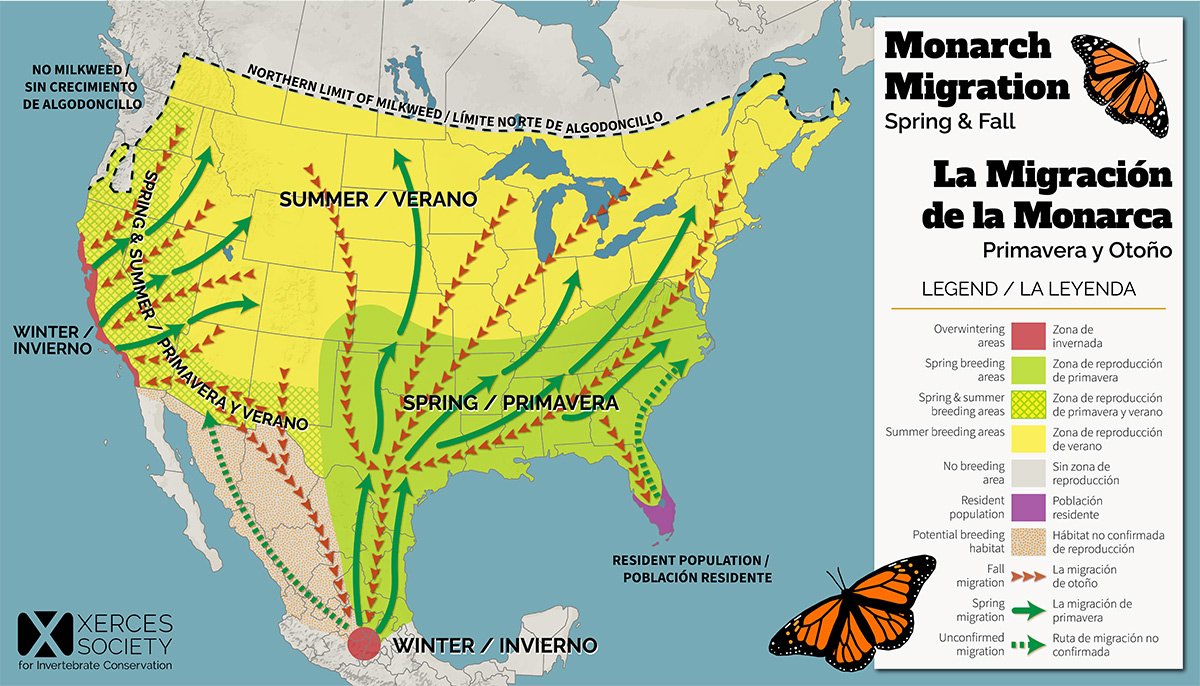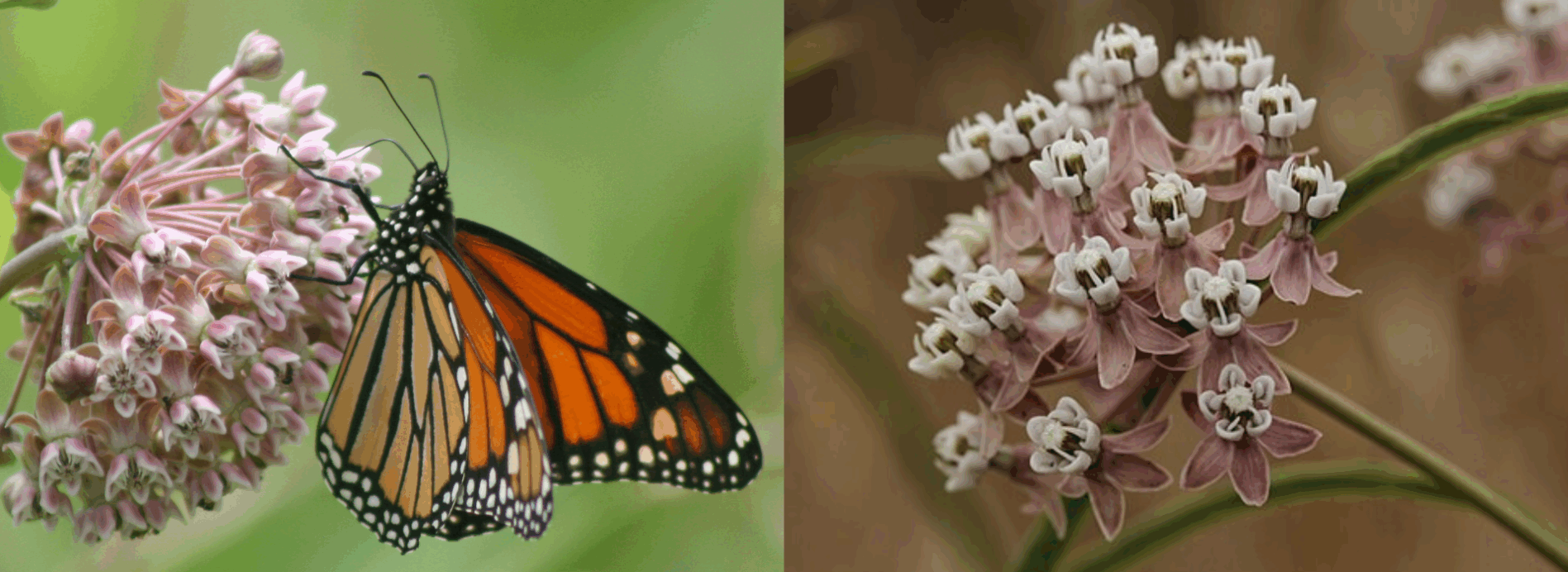The western monarch population has reached a near record low.
According to the Xerces Society, fewer than 10,000 butterflies were found overwintering in California during their annual monarch count last winter—the second lowest number recorded since tracking began in the 90s.
Unfortunately, these beloved and essential pollinators face a myriad of threats across their migratory range—from climate change to pesticides to habitat loss.
It’s critical that we begin addressing these issues to prevent them from dying off completely—and one of the easiest ways to start is by planting the native milkweed that serves as their host plant.
Right now, TreePeople is working on planting more than 5,000 native milkweed plants across the Angeles National Forest, in an effort to increase western monarch habitat. Here’s how this will benefit monarch butterflies, and how you can help:
Monarchs on the move
In North America, there are two major monarch populations—eastern monarchs and western monarchs. Here in California, the bright-orange butterflies you’ll spot fluttering around this time of year are western monarchs, which migrate to coastal sites like Los Angeles from other parts of the western US in the fall.
These monarchs travel to milder areas to overwinter and reserve resources for the breeding season ahead. And then, come spring, they set off in search of their favorite host plant—milkweed—so they can lay the next generation of eggs.

Monarchs and milkweed—a perfect match.
Monarchs and milkweed have co-evolved together for centuries. In fact, milkweed is the only plant that monarch caterpillars can eat—and it gives them special protection from predators!
The latex in milkweed leaves contains compounds called cardiac glycosides, which are toxic to most animals—but not monarchs. When the caterpillars feast on them, they also become toxic to other animals—allowing them to grow up into beautiful butterflies that help pollinate milkweed in return!

Let’s plant some milkweed!
Native milkweed species like Asclepias fascicularis and Asclepias eriocarpa are critical to monarchs’ ability to breed and migrate in the west—and we need to work together to make sure these plants are plentiful here in SoCal!
Want to help? Join us at our upcoming Monarch Milkweed Mash this October 18th!
This will be our biggest milkweed planting event EVER, and it will be a lot of fun! In addition to creating new habitat for monarch butterflies and other pollinators, we’ll be hosting a pollinator costume contest, giving away milkweed and coast live oaks, and presenting all kinds of other family-friendly, monarch-related educational activities!
And if you can’t make the Monarch Milkweed Mash, don’t worry—there will be plenty of other opportunities to help us restore important monarch habitat. We’ll be continuing to plant milkweed at ALL of our upcoming mountain forestry events, which you can sign up for on our volunteer page.
Funding for this project is provided by CAL FIRE and the National Fish & Wildlife Foundation with the support from the U.S. Fish and Wildlife Service grant F22AP03407.

